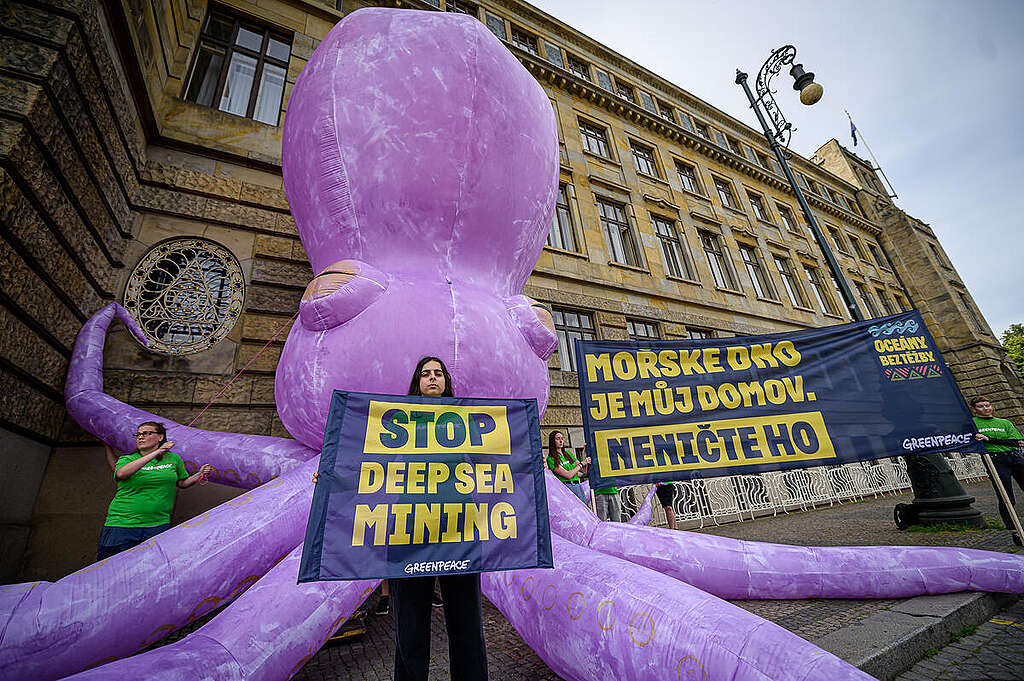The natural wonders of the deep ocean are in danger despite the adoption of a historic Global Oceans Treaty. Right now, the greedy deep sea mining industry is hoping to rip up the seabed for profits, and there's very little standing between their mining machines and fragile marine ecosystems that took millennia to develop.
Deep sea mining would risk disturbing and releasing carbon stored in deep sea sediment, and threaten the livelihoods and traditions of people from the Pacific and their spiritual connection to the ocean. The industry outrageously claims such ecological risks are needed for the energy transition, but monster machines scraping the seafloor beyond the surface, leaving a trail of destruction, cannot be part of the solution to save the planet.
With crucial meetings of the International Seabed Authority taking place in Kingston, Jamaica from 10 July, let's take a closer look at the threat to the deep sea as well as the people power mobilizing to stop deep sea mining:
Raise your hand if you've heard about the 'two year rule'
Not seeing a lot of raised hands? That's because the "two year rule" is an obscure provision in the Law of the Sea. Nevertheless, it has been exploited by the deep sea mining industry to pressure governments to allow deep sea mining.
Nauru, a small island state that sponsors the dodgy The Metals Company, triggered this provision two years ago. By doing so, they essentially started a countdown to allow a contractor to try to start deep sea mining - even if no regulation is in place at the end of the two years. After squandering an opportunity to shut the door to deep sea mining during the last meeting of the International Seabed Authority in March, governments still have no idea what to do if a company applies to start mining after 9 July, when the two years run out.
The global ocean doesn't belong to anyone. We can't sell it to the highest bidder.
Imagine that we could stop a dangerous extractive industry from existing. Imagine if we could stop offshore drilling at the dawn of the oil age. This is where we are now with deep sea mining. Governments are currently at a crossroads, where they can choose between doing what is right or going down a very dangerous path.
People power can stop deep sea mining
All around the world, people are calling for a stop to deep sea mining - and governments are listening. On 28 June, Switzerland joined the group of 16 countries opposed to deep sea mining. Globally, more than 700,000 people have signed the petition against deep sea mining. One day after another, mobilization grows. Together, we need to increase political pressure because we can't afford the risk of destroying the oceans.

But people power and mobilization is just one part of the story. Meanwhile, the Norwegian government recently decided to pursue deep sea mining in its seabed in the Arctic! There is no time to waste because after 9 July, the risk posed by deep sea mining will be more immediate than ever.
A clear signal needs to be sent by world leaders at the ISA: deep sea mining has no future.






